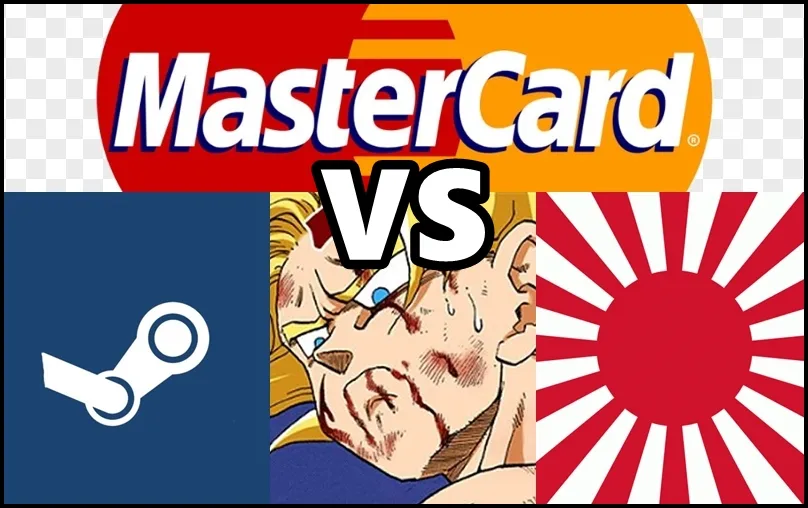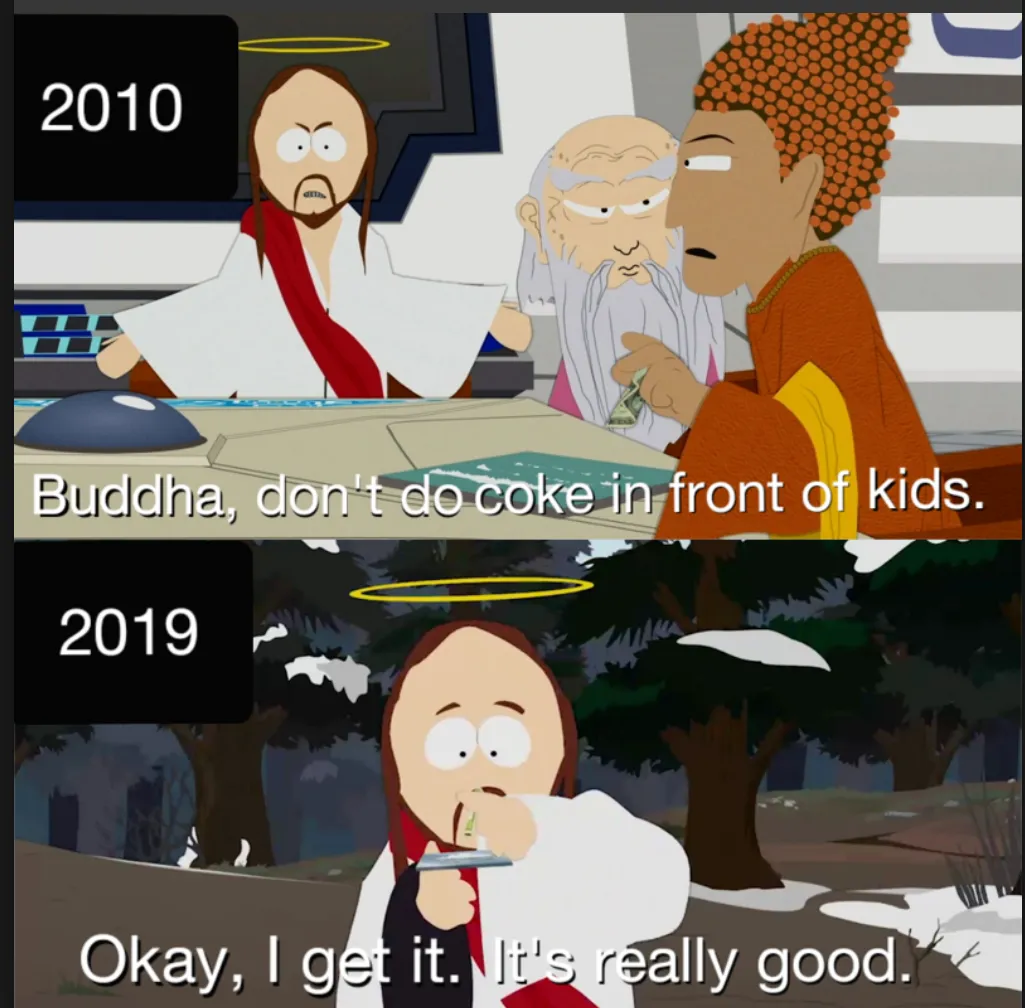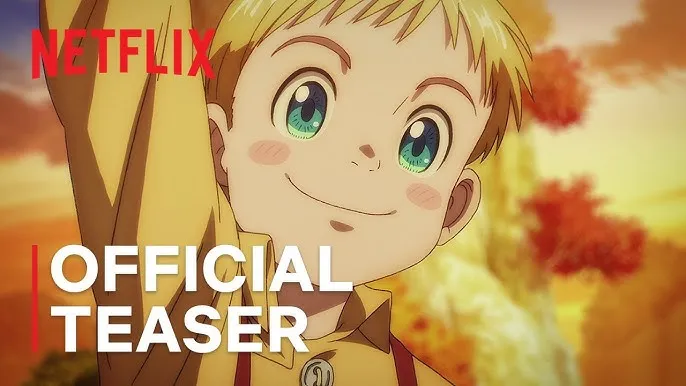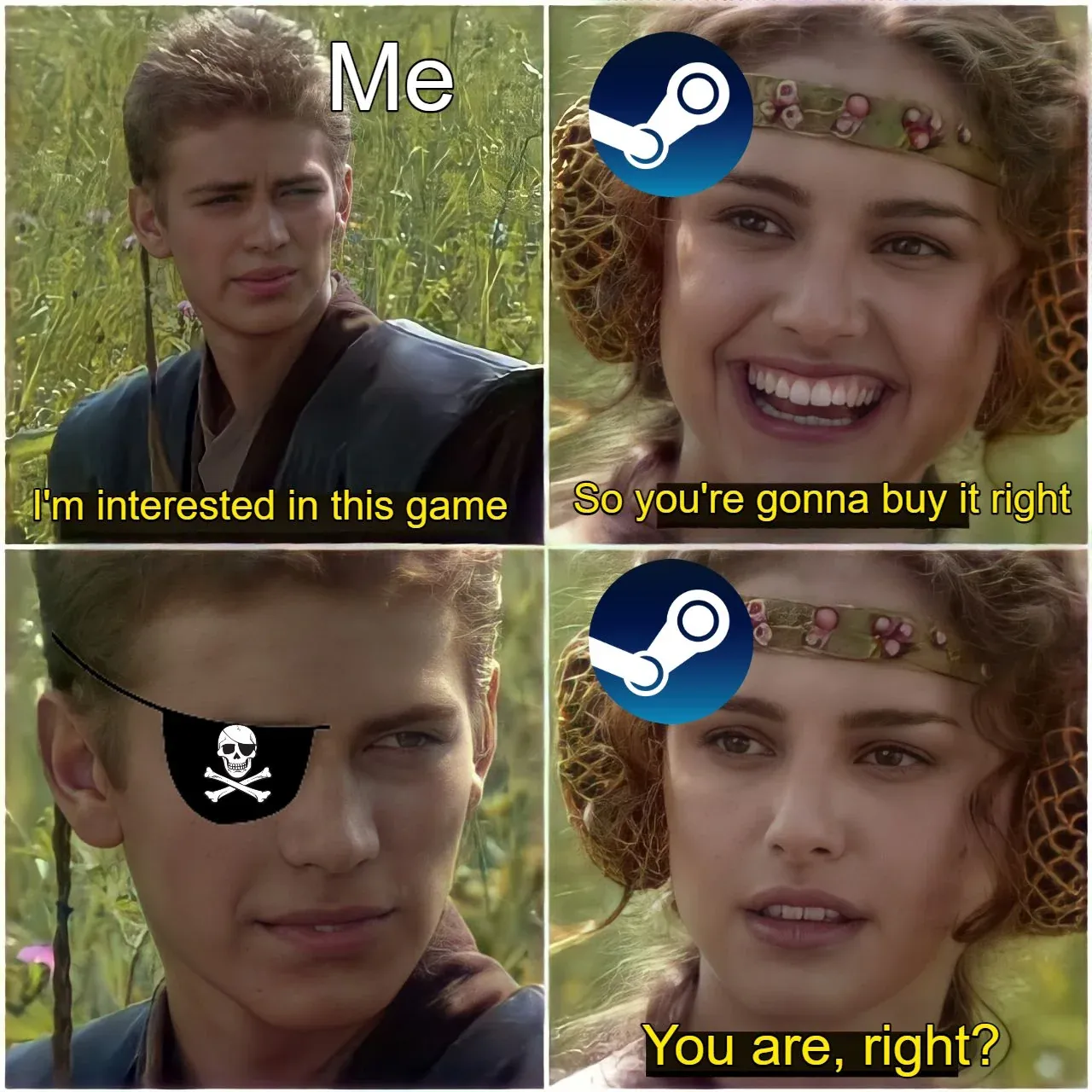
Recently, another online drama erupted. It's essentially a consequence of previous ones, but above all, it's a deliberate act on America's part. The point is that their content (games, cartoons, series, films) is generating decreasing revenue, and money is flowing abroad. Primarily to Asian countries, although when it comes to cinema, money is also flowing in other directions. What "actions" am I talking about? Counteracting the promotion of adult films and content that objectifies sex or people. Generally, the idea is sound, as such actions have eliminated a great deal of content about contact with minors, forced intercourse, and recordings that were supposed to remain hidden. Content recorded in compliance with the law and general interpersonal rules has suffered, but it was worth the effort to bring about change. Although these "actions" serve mainly as a convenient pretext, it's hard to deny a certain validity. Where the line is blurred, there is a gray area, which encourages abuse. This can be seen in every sector of the economy, work, and interpersonal relations. This is evident in every sector of the economy, in work, and in interpersonal relationships. Each of us wants to make our lives easier and, whenever possible, exploit others in some way. Returning to those illegal videos, we don't always receive monetary compensation (which is usually a small fraction of what they earned from our harm), yet the video of us is online.
What are the details of this specific case? As we can read on bankier.pl, a new section was introduced in the July update to Steam's terms and conditions. Section 15 prohibits "content that violates the rules and standards of Steam payment operators and associated card operators, banks, or internet service providers. In particular, certain adult content. This includes companies such as PayPal, Visa, Mastercard, Discover, Skrill, and banks." This means that Valve, the owner of Steam, can now remove content that contradicts the values espoused by one of these companies. The changes to the terms and conditions resulted in the removal of several hundred adult titles from the platform. However, gamers perceive this as a form of censorship.

And rightly so. However, as I said, the negative impact of this content on people cannot be denied. We see practical consequences in everyday life, for example, in the increased popularity of nudity and controversial, high-profile actions. Games, anime, and series, like social media, influence people, but not in the way (or to the extent) some people think. A person won't become a murderer because they played Doom, GTA, or FEAR. A straight man won't become gay even if he watches 10 Yaoi series or Netflix shows with LGBT themes. Watching anime won't make you a Hikikomori (an extreme no-life, to put it bluntly). But it affects us on other levels and in other ways. However, that's a topic for another discussion; let's get back to the specifics.
The campaign was organized by Collective Shout, an Australian group of women with conservative views. It fights the objectification of women and girls in media, pop culture, and advertising. The petition was signed by 70,000 people. It was successful, as Steam caved and removed the game No Mercy. I don't know it, but the description reminded me of games from when I was a pimply teenager, hormones driving me to be aroused by digital breasts, digital, poorly produced sex scenes, and cheap, thoughtless, and ugly violence. I'm not talking about titles like Lula 3D, the Leisure Suit Larry series, Manhunt, The Suffering, Hatred, etc. They're acceptable to criticize, but they're in a separate category. It's like comparing the first Naruto series to Demon Slayer, developed not by Ufotable but by Pierrot at his worst. Or a job that pays $5 instead of $50. There's a lot to criticize about these games, but certainly not that they were made thoughtlessly, appealing only to basic human instincts. Games like No Mercy are a different story, comparable to the cheapest pornography or the stupidest movies, where profanity predominates and the height of humor is throwing shit at someone. As kids, we were somehow "into it." By the time I was 20, I stopped seeing it as anything more than a cheap thrill. Now I see it as simply garbage created to make cheap, easy money. As I said earlier: "Each of us wants to make our lives easier and, whenever possible, exploit others in some way." In this case, they mainly want to profit from children. And what happens to them, how it affects them, is no longer their concern.

Do gamers have good reason to be afraid? Yes, they do. As reported by TheGamer, the organization previously tried to censor the game Detroit: Become Human or GTA 5 in Australia. Fun fact: In Australia, 18+ movies are banned if... The actress has too small breasts because it promotes pedophilia. My girlfriend played Detroit and even tried to create a second ending. Like any normal woman, she doesn't support overt violence against women. I haven't heard her complain about it. People like to look for problems where there aren't any. Generally, people quite often do stupid things/make mistakes (and sometimes both) when they have too much free time or are driven by greed or emotions. I remember once hearing NrGeek, a Polish game reviewer, quote some feminist who criticized the patriarchy in the first Super Mario games. Those from the NES era and the arcade games (the Donkey Kong game). The theory that the Doom Slayer is an Avenger created by God so he wouldn't have to get his hands dirty eliminating the most vile evil in the universe makes more sense now... Oh w8, the Doom Eternal DLC kind of confirmed that, ha ha.
Let me start by saying that art should be free. Sure, there should be some framework, but it should be broad enough not to restrict the creator's artistic freedom. If you write texts, and since we're on a blogging site, there's a good chance you do, then you know that inspiration can come from anywhere. Skilled craftsmen or those with a vivid imagination can craft a long piece inspired by a single sentence. One word can break the dam that's been blocking the stream of consciousness for X hours. Art must be as free as possible, just like the will, to express its full potential. As for free will, yes, many things limit us, yes, determinism exists, but at the end of the day, it's the I, or EGO, that makes the decision. Anyone can come up with an animated film in which Jesus, Allah, Buddha, or any god defecates in a river. It's simple: they get into the water, take off their underwear, and throw away undigested pieces of food. However, it can be done well. I remember a few jokes from cartoons a la South Park or Rick and Morty (I think even the famous George Carlin did this too), which presented a similar joke in a funny and clever way. They provided context, examples from other disciplines, other threads or dialogue, a series of specific situations that led to the punchline. They presented it with respect for the characters and the audience's beliefs, while maintaining a touch of dark humor. After all, everyone excretes, even women. It's part of nature. Even if the first type of joke makes me laugh, I forget about it the same day, or at the latest the day after. The second type of joke sticks with me longer and shows that the slogan "context is king" is true.

The same applies to issues concerning threads/members of the LGBT community. Often, these people, like people of color, are treated as tokens. That is, their threads aren't given much attention. They're supposed to cause a shitstorm or serve as a representative role, ensuring everything lines up in Excel. Yes, there are people who criticize such threads, but it's usually out of their own frustration or judging by appearances. I know this because I'm closer to this community and I see that most people don't have valid arguments for it. I mean, I understand their frustration, but these are often flawed arguments. Producers tokenize characters or rely on the worst form of marketing – negative marketing. In this case, such news generates a lot of online traffic. Because a bunch of idiots are swarming social media, spamming dozens of comments a day, 365 days a year (no, I'm not joking, they do it for free xD) and... This is where the worse part begins: they rate X (insert any cultural medium in place of X) a 1/10, destroying the private lives of creators, actors, etc. who... Fucking listen, they're doing their job. We all have our flaws, preferences, emotions, triggers. It happens to everyone, but not everyone does it methodically, drowning in hatred. That said, these same people often praise good LGBT stories. I see it in their genuine reactions. It's just that creators (in this case, directors, screenwriters, and probably much less often actors) sometimes do shitty things for various reasons. Just vote with your wallet, and sometimes producers even look at the reviews.
Besides the obvious reason (profit issues for websites like PH), there's another reason why the company has removed a lot of amateur adult films. If you entered specific tags, you could find videos of a man forcing sex on a woman, an adult and a teenager around 16 having fun, and people clearly under the influence of alcohol or drugs who didn't understand where they were or what they were doing. This is no coincidence. Have you ever wondered why comments are disabled on videos on the YouTube Kids platform? Child enthusiasts communicated there using a specific language. The same language used, for example, on forums and websites for anime fans. These supposedly children or teenagers discuss "their stupid things" in strange slang, so most people ignore it. They don't realize it's a manufactured language used to convey information. They don't notice that the galleries are closed, and the profiles definitely don't look like they belong to teenagers. These are becoming less common these days, but a few years ago, they were a plague in some places. I don't know if the creators of PH know everything there is to see on their site, but they are certainly aware of the problem. In the case of games and anime, everything is easier to verify because everything must adhere to certain standards and is verified. Even if they somehow escape the radar, it's much easier to check and censor a few thousand games than millions of movies. One service like Steam vs. at least a few sites with adult content.

Yes, it's throwing the baby out with the bathwater, but I find the reasoning compelling. Even if it's cynical. We can't fix the world, but we can at least eliminate some of the problems. A much bigger problem for me is that the censorship isn't being handled by a corporation, but by another company that has absolutely no influence over such content. I say this despite my dislike for international companies. Before explaining why, let me give you a fitting example concerning artistic freedom. I hate the anime Shokugeki no Souma. I've been gagging ever since I saw episode 2 or 3, when one of the characters has a mega-orgasm from delicious food. Anime isn't cringe-worthy, but some people think like me. Do I ban SoS? No. If I want to watch hentai, I'll watch hentai, not an adaptation of a comic published by the WSJ, but I don't support Souma's censorship. I haven't had the opportunity to experience such pleasure myself, but such things can be found in every culture in the world where culinary arts are of a sufficiently high standard. Everything else is characteristic of the genres of slice-of-life, battle-shounen, etc. If I don't like it, I don't watch it. As simple as 2+2=4.
What will be the consequences of this? I'll start with anime, although this also applies to games, and vice versa. I think companies are trying to limit sales like boiling a frog. They're starting by limiting smaller businesses so that too many customers aren't affected. This will force some undecided viewers to pay for streaming. Some people will switch to American sites that offer the same content, while others will start watching on streaming. There's always a profit to be made. Netflix, Prime, and Disney invest too much money in anime to cancel it in one fell swoop. This allows them to transfer some of their investment to their platforms, which means less money ends up in the wallets of Asian corporations. If that doesn't work, they'll probably invent some excuse to disparage anime and ultimately ban it. The same goes for vendors/intermediaries selling various gadgets. I wouldn't be surprised if we return to the days of downloading anime via IRC, like in my youth. Or discover new methods to bypass network restrictions.

Regarding official statistics, Netflix showed that 150 million customers watch anime and hold a 63% market share. D+ is right behind them with a 46% market share. Links with detailed data are at the end. People who watch anime at least once a week were taken into account. Quite rightly so, because while children have a lot of free time, I and other older fans often have other things to do and relegate most of our entertainment to weekends, days off, etc. The quote confirms this: "While only 9% of Baby Boomers watch anime weekly, 50% of both Gen Z and Millennials are weekly viewers. APAC leads in weekly viewership at 48%, compared to 36% in the U.S. and 21% in EMEA." The research also revealed that 28% of anime viewers worldwide spent $200 on anime-related products in the last year, followed by 40% of American viewers. These aren't large sums, but considering the rise in anime popularity and government policies, it's worth fighting for. It's no surprise, then, that Netflix is investing heavily in dubbing worldwide.
Why is anime so popular? There are several reasons, and not all of them are obvious. When I was younger, the majority wanted to watch anime in Japanese with subtitles. Meanwhile, today, 80-90% of people watch anime exclusively with dubbing. To me, that's heresy, but oh well—the people have made their decision. Of course, we can include unofficial sources, but it's difficult to argue with them due to the lack of data. I don't know about you, but the other reasons don't surprise me. I'm not surprised, because, along with many fans of Japanese animation, we've watched anime for this very reason. The same goes for renowned directors like James Gunn, Darren Aronofsky, Quentin Tarantino, and the Wachowski sisters. 29% of US viewers are tired of sequels and remakes. 32% chose anime because of their interest in Japan, 36% because of the diversity of genres and increased experimentation with them. The largest percentage, 39%, of American viewers said they prefer anime because of its unique worlds and storylines. This wasn't addressed in these articles, but previous ones (from a few years ago) did – the new generation is more rejecting empty "values" than my generation. This is evident, for example, in the increase in readership. This is at least the trend in Poland, so out of curiosity, I looked at foreign sources. Some sources show an increase, others say not.

Since I've touched on piracy and changes among young people, I'll continue. As I said in the introduction, although my generation pioneered the concept of paying for DLC and accessing paid content, we can't compete with today's youth and 20-somethings. They're more likely to buy paid accounts, game skins, and other digital items that signal prestige. We did this too, but much less. This is especially true when it comes to pirated anime. For the new generation, the need to buy legal copies and access them legally is as obvious as piracy was for my generation. According to Google AI and eMarketer, most members of the younger generation primarily rely on legal sources. The trend is upward, meaning the number of subscribers grows every year. They try to avoid piracy due to the risks and (just my addition) their lower computer literacy. At their age, we knew much more about it. Pirated versions are mainly used by poor or wealthy people when access to streaming is limited. There's also another factor – the lack of availability of a given title or a fragmented market. The first one is easy: the title isn't officially available, and sometimes you can't even buy a copy in stores. As for the fragmented market, not everyone wants to buy a subscription just for one title.

When it comes to games, although I dislike Japanese corporations more than American ones, I prefer Sony or Nintendo. Yes, both companies broke some things, introduced bad practices, etc., but we need to limit the number of bad entities, not add more. Each such entity hinders communication; each one adds something of their own, which sometimes means asking for a certain option to be removed. As I said in the penultimate paragraph, there are anime that disgust me, but I can't say they break the law. The creators of the GTA series had a similar mentality. With the installment that took the game to the 3D (or later, I'm not a fan, I don't remember which), some creators were concerned about whether certain solutions would pass the censorship. It turned out that those they considered controversial had no problems during review. However, those they considered reliable had to be censored. If anyone is interested in the full story, I recommend the book "Jacked" about GTA. The review committee members sometimes reacted with surprise, which doesn't surprise me. Many good things can be presented negatively, just as toxic things can be presented positively. It's a matter of semantics. Ordinary people often don't realize what rights they have, what is exploited by governments or companies. CEOs and other decision-makers of large companies/corporations are also ordinary people, they simply earn astronomical amounts of money. They have the right not to know certain things, but they desire peace and quiet. And such controversial issues cause problems. It's just that nudity, adult films, and so on have become mainstream. This isn't good, and the justification for restrictions can be debated, and indeed should be, but they certainly don't generate the same controversy as they did decades ago. Therefore, this argument is irrelevant. Those 70,000 signatures are a drop in the ocean on a national scale, let alone a continent. Assuming a country has 30 million citizens, 70,000 signatures isn't even 0.25%.
https://www.thegamer.com/itch-io-follows-steam-bans-adult-games-blames-collective-shout/
https://variety.com/2025/tv/news/netflix-disney-anime-dentsu-study-1236446772/
https://www.hollywoodreporter.com/tv/tv-news/netflix-anime-slate-2025-1236307714/
https://www.emarketer.com/content/gen-z-millennials-drive-anime-viewership-and-brands-should-tap
https://ec.europa.eu/eurostat/web/products-eurostat-news/w/ddn-20240809-2
https://www.icanhelp.net/blog/pay-to-win-video-games-and-their-impacts-on-teens

Niedawno temu, rozpętała się kolejna drama w internecie. Jest to w zasadzie pokłosie poprzednich, ale przede wszystkim, celowe działanie ze strony Ameryki. Chodzi o to, że ich content (gry, kreskówki, seriale, filmy) generują coraz mniejsze przychody, a pieniądz ucieka zagranicę. Głównie do krajów Azjatyckich, choć jeśli chodzi o kinematografię, to pieniądz płynie też w innych kierunkach. O jakich "akcjach" mówię? Przeciwdziałaniu promocji filmów dla dorosłych oraz treści uprzedmiatawiające seks lub ludzi. Generalnie idea jest słuszna, bo przez takie działania zniknęło mnóstwo treści o kontaktach z nieletnimi, wymuszonym współżyciem, nagrań które miały nie wypłynąć na światło dzienne. Ucierpiały na tym treści nagrane zgodne z prawem i ogólnymi zasadami międzyludzkimi, ale warto było je poświęcić dla zmiany. Mimo, że te "akcje" pełnią głównie rolę wygodnego pretekstu, to trudno odmówić im pewnej słuszności. Tam gdzie granica jest płynna, tam jest szara strefa, co zachęca do nadużyć. Widać to w każdej branży gospodarki, pracy, relacjach międzyludzkich. Każdy z nas chce jakoś sobie ułatwić życie oraz w miarę możliwości wykorzystać innych w jakiś sposób. Wracając do tych nielegalnych filmów - nie zawsze dostaje się rekompensatę w postaci pieniędzy (które zazwyczaj są niewielką częścią tego, co zarobili na naszej krzywdzie), a filmik z nami jest w sieci.
Jakie są szczegóły tej konkretnej sprawy? Jak możemy przeczytać w serwisie bankier.pl, w lipcowej aktualizacji regulaminu Steama, wprowadzono nowy punkt. Punkt o numerze 15, zakazuje "treści, które naruszają zasady i standardy operatorów płatności Steam i powiązanych operatorów kartowych i banków albo dostawców usług internetowych. W szczególności pewnych treści tylko dla dorosłych. Chodzi m.in. o takie firmy jak PayPal, Visa, Mastercard, Discover, Skrill, czy banki. Oznacza to że Valve, właściciel serwisu Steam, może teraz usunąć treści przeczące wartościom głoszonych przez jedną z tych firm. Efektem zmian regulaminu było skasowanie z platformy kilkuset tytułów dla dorosłych. Gracze dopatrują się w tym jednak pewnej formy cenzury.

I słusznie. Niemniej tak jak mówiłem, nie można negować negatywnego wpływu tych treści na ludzi. Praktyczne skutki widzimy w codziennym życiu, choćby wzrostem popularności nagości i kontrowersyjnych, głośnych akcji. Gry, anime, seriale podobnie jak social media, wpływają na człowieka, ale nie w taki sposób (i nie w takim stopniu), jak się niektórym wydaje. Człowiek nie stanie się mordercą, bo grał w Doom, GTA lub FEAR. Heteroseksualny facet nie stanie się gejem, nawet jeśli obejrzy 10 serii z gatunku Yaoi lub seriale na Netflixie z wątkami LGBT. Oglądając anime nie staniesz się Hikikomori (skrajnym no-lifem, mówiąc w skrócie). Ale wpływa to na nas na innych poziomach i w inny sposób. To jednak temat na inną dyskusję, wróćmy do konkretu.
Akcja została zorganizowana przez Australijską grupę złożoną z kobiet o konserwatywnych poglądach, czyli Collective Shout. Walczy z uprzedmiatawianiem kobiet i dziewczynek w mediach, popkulturze, czy reklamie. Petycję podpisało 70 tysięcy osób. Odniosła sukces, bo Steam ugiął się i usunął grę No Mercy. Nie znam jej, ale po opisie przypomniałem sobie gry z czasów, gdy sam byłem pryszczatym nastolatkiem i hormony kazały mi się podniecać cyfrowymi cyckami, cyfrowym, kiepsko zrealizowanymi scenami seksu, czy tanią, bezrefleksyjną i brzydką przemocą. Nie mówię o tytułach typu Lula 3D, serii Leisure Suit Larry, Manhunt, The Suffering, Hatred etc. Można je krytykować, ale to jest osobna kategoria. To tak jakbyście porównywali 1 serię Naruto, do Demon Slayera tworzonego nie przez Ufotable, a Pierrota ze swoich najgorszych czasów. Albo pracę za którą dostaniecie 5 dolarów, zamiast 50. Tym grom można wiele zarzucić, ale na pewno nie to, że zostały zrobione bezmyślnie, odnosząc się tylko do podstawowych, ludzkich instynktów. Co innego gry typu No Mercy, którą można porównać do najtańszej pornografii lub najgłupszych filmów, gdzie przeważają wulgaryzmy, a szczytem poczucia humoru jest obrzucenie kogoś gównem. Gdy byliśmy dziećmi, jakoś to nam "wchodziło". Już jako 20-latek przestałem widzieć w tym cokolwiek poza próbą wzbudzenia taniej sensacji. Teraz widzę, że to po prostu śmietnik stworzony, by zarobić tanie i łatwe pieniądze. Tak jak powiedziałem wcześniej: "Każdy z nas chce jakoś sobie ułatwić życie oraz w miarę możliwości wykorzystać innych w jakiś sposób." W tym przypadku chcą zarobić głównie na dzieciach. A co się z nimi stanie, jak to na nich wpłynie, to ich już nie obchodzi.

Czy gracze mają słuszne powody do strachu? Owszem. Jak donosi portal TheGamer, organizacja wcześniej próbowała ocenzurować grę Detroit: Become Human lub GTA 5 na terenie Australii. Ciekawostka: W Australii zakazano filmów +18, jeśli... Aktorka ma za mały biust, bo to promuje pedofilię. Moja dziewczyna grała w Detroit, nawet próbowała zrobić drugie zakończenie. Jak każda normalna kobieta, nie popiera otwartej przemocy wobec kobiet. Jakoś nie słyszałem, by z tego powodu narzekała. Ludzie lubią szukać problemów tam, gdzie ich nie ma. Generalnie ludzie dość często robią głupoty / popełniają błędy (a czasem jedno i drugie), gdy mają za dużo wolnego czasu lub kieruje nimi chciwość lub emocje. Pamiętam kiedyś, jak NrGeek, polski recenzent gier, cytował jakąś feministkę, która krytykowała patriarchat w pierwszych grach z Super Mario. Tych z czasów NES-a oraz automatów Arcade (gra o Donkey Kongu). To już więcej sensu ma teoria o tym, że Doom Slayer to Mściciel stworzony przez Boga, by ten nie musiał sobie brudzić rąk, eliminując najbardziej plugawe zło wszechświata... Oh w8, DLC do Doom Eternal to niejako potwierdziło, ha ha.
Zacznę od tego, że sztuka powinna być wolna. Jasne, powinny być pewne ramy, ale takie dość ogólne, by nie ograniczać swobody artystycznej twórcy. Jeśli piszecie teksty, a skoro jesteśmy na portalu dla blogerów, to jest duża szansa na to, że tak, to wiecie, że inspiracja potrafi przyjść z każdego miejsca. Sprawni rzemieślnicy lub ci z bogatą wyobraźnią, mogą zrobić długi tekst, będąc natchnionym jednym zdaniem. Jedno słowo potrafi rozbić tamę, która od X godzin blokuje strumień świadomości. Sztuka musi być możliwie jak najbardziej wolna, podobnie jak wola, by mogła pokazać swój pełny potencjał. Co do wolnej woli - tak, ogranicza nas wiele rzeczy, tak istnieje determinizm, ale na koniec dnia, to JA vel. EGO podejmuje decyzję. Każdy może wymyślić film animowany, w którym Jezus, Allah, Budda, dowolny Bóg defekuje do rzeki. Prosta sprawa, wchodzi do wody, ściąga gacie i wyrzuca nieprzetrawione kawałki jedzenia. Można to jednak zrobić w dobry sposób. Kojarzę kilka żartów z kreskówek a'la South Park, czy Rick and Morty (chyba nawet słynnemu George'owi Carlinowi też się to zdarzyło), które w zabawny i mądry sposób przedstawiły podobny żart. Obudowali to pewnym kontekstem, przykładami z innych dziedzin, innymi wątkami lub dialogami, ciągiem konkretnych sytuacji, które doprowadziły do puenty. Przedstawili to z szacunkiem dla postaci, wierzeń widzów, przy utrzymaniu wagi czarnego humoru. W końcu każdy wydala, nawet kobiety. To część natury. Nawet jeśli ten pierwszy typ żartu mnie rozbawi, to zapominam o nim tego samego dnia, najpóźniej dzień po. Drugi typ żartu zostaje ze mną na dłużej i pokazuje, że hasło "context is king" ma rację bytu.

To samo w przypadku kwestii dotyczących wątków / członków społeczności LGBT. Często ci ludzie, podobnie jak ludzie o innych kolorze skóry, są traktowani jak token. Czyli nie przykłada się większej uwagi do ich wątków. Mają wywołać shitstorm lub pełnić funkcję reprezentatywną, by wszystko zgadzało się w Excelu. Tak, są ludzie, którzy krytykują takie wątki, ale to z reguły wynika z własnych frustracji lub ocenianiu po pozorach. Wiem to, bo bliżej mi do tego środowiska i widzę, że większość ludzi nie ma na to zasadnych argumentów. W sensie, rozumiem ich frustrację, ale często są to błędne argumenty. Produceni tokenizują postacie lub kierują się najgorszą formą marketingu - negatywną. W tym przypadku, takie newsy zapewniają im duży ruch w sieci. Bo banda baranów lata po socialach, spamuje kilkanaście komentarzy dziennie, 365 dni w roku (nie, nie żartuję, robią to za darmo xD) i... Tu sie zaczyna gorsza kwestia, oceniają X (w miejsce X wstaw dowolne medium kultury) na 1/10, niszczą prywatne życie twórców, aktorów itd. którzy... Uwaga, kurwa mać, wykonują swoją pracę. Każdy z nas ma swoje przywary, preferencje, emocje, wyzwalacze. Każdemu zdarza się, ale nie każdy robi to metodycznie, pogrążając się w nienawiści. To powiedziawszy, ci sami ludzie często chwalą dobre wątki LGBT. Widzę to po ich nieudawanych reakcjach. Po prostu twórcy (w tym przypadku, reżyserzy, scenarzyści, prawdopodobnie znacznie rzadziej osoby pracujące w aktorstwie) z różnych powodów, czasem robią to chujowo. Wystarczy głosować portfelem, wtedy czasami produceni zaglądają do opinii.
Pomijając oczywisty powód (kwestie zarobkowe dla serwisów typu PH), jest jeszcze jedna przyczyna, czemu firma wywaliła mnóstwo amatorskich filmów dla dorosłych. Jak się wpisało konkretne tagi, można było znaleźć filmy, jak facet wymusza stosunek na kobiecie, jak bawi się dorosły i nastolatka mająca około 16 lat, ludzie ewidentnie pod wpływem alkoholu lub narkotyków, którzy nie rozumieją gdzie są i co robią. To nie jest przypadek. Zastanawialiście się, dlaczego filmy na platformie YT Kids mają wyłączone komentarze? Miłośnicy dzieci komunikowali się tam specyficznym językiem. Takim samym, jakim komunikują się m.in. poprzez fora i strony dla fanów anime. Niby-dzieci lub nastolatki rozmawiają o "swoich głupotkach" w dziwnym slangu, więc większość nie zwraca na to uwagi. Bo nie wiedzą, że to sztuczny język, którym przekazują sobie różne informacje. Nie zwracają uwagi na to, że galerie są zamknięte, a profile zdecydowanie nie wyglądają jakby należały do nastolatków. Teraz widać je coraz rzadziej, niemniej jeszcze kilka lat temu to była plaga w niektórych miejscach. Nie wiem, czy twórcy PH wiedzą o wszystkim, co można zobaczyć na ich stronie, ale na pewno są świadomi istnienia problemu. W przypadku gier i anime, można łatwiej wszystko sprawdzić, bo wszystko musi być zgodne z pewnymi standardami, bo jest weryfikowane. Nawet jeśli jakimś cudem unikają radarów, to znacznie łatwiej jest sprawdzić i ocenzurować kilka tysięcy gier niż miliony filmów. Jeden serwis typu Steam vs przynajmniej kilka stron z contentem dla dorosłych.

Tak, jest to wylewanie dziecka z kąpielą, ale przemawia do mnie to uzasadnienie. Nawet jeśli jest cyniczne. Świata nie naprawimy, ale możemy pozbyć się przynajmniej niektórych problemów. Dużo większym problemem jest dla mnie to, że za cenzurę zabiera się nie korporacja, a inna firma, która nie ma zupełnie wpływu z takimi treściami. Mówię to pomimo mojej niechęci do międzynarodowych firm. Zanim wyjaśnię czemu tak myślę, podam pasujący przykład dotyczący wolności artystycznej. Nienawidzę anime Shokugeki no Souma. Mam odruch wymiotny odkąd zobaczyłem 2, czy 3 odcinek, jak jedna z bohaterek doznaje mega orgazmu od smacznego jedzenia. Anime nie jest cringe'owe dla każdego, ale niektórzy myślą jak ja. Czy zabraniam oglądania SoS? Nie. Jeśli chcę obejrzeć hentaia, to odpalam hentaia, a nie adaptację komiksu wydawanego przez WSJ, ale nie popieram cenzury Soumy. Sam nie miałem okazji zaznać takiej przyjemności, ale takie rzeczy znajdziemy w każdej kulturze świata, gdzie sztuka kulinarna stała na odpowiednio wysokim poziomie. Całą reszta to elementy charakterystyczne dla gatunków slice of life, battle-shounen etc. Nie podoba mi się, to nie oglądam. Proste jak 2+2=4.
Jakie będą tego następstwa? Zacznę od anime, aczkolwiek to dotyczy również gier oraz w drugą stronę. Wydaje mi się, że firmy dążą do tego, by ograniczyć sprzedaż na zasadzie gotowania żaby. Najpierw zaczynają od ograniczenia mniejszych podmiotów, by sprawa nie dotyczyła zbyt wielu klientów. Dzięki temu zmuszą część niezdecydowanych do płacenia za streaming. Część osób przejdzie na Amerykańskie strony zajmujące się tym samym, część osób zacznie oglądać na streamingu. Zawsze to jakiś zysk do przodu. Netflix, Prime i Disney inwestują zbyt wiele pieniędzy w anime, by to skasować jednym ruchem. Dzięki temu przenoszą część ruchy na swoje platformy, przez co mniej pieniędzy trafia do portfeli Azjatyckich korporacji. Jeśli to nie pomoże, pewnie wymyślą jakiś powód, by obrzydzić anime, a w ostateczności zbanować je. To samo dotyczy sprzedawców / pośredników w sprzedaży różnych gadżetów. Nie zdziwię się, jak wrócimy do czasów, gdy pobieramy anime przez sieć IRC, tak jak to było w czasach mojej młodości. Albo odkryjemy nowe metody, które omijają ograniczenia w sieci.

Jeśli chodzi o oficjalne statystyki, Netflix pokazał że 150 milionów klientów ogląda anime oraz posiadają 63% udziałów w rynku. Tuż za nimi piastuje się D+, mając 46% udziału w rynku. Linki z dokładnymi danymi macie na końcu. Brano pod uwagę ludzi, którzy oglądają anime przynajmniej raz w tygodniu. Całkiem słusznie, bo o ile dzieci mają dużo wolnego czasu, o tyle ja i inni starsi fani, często mamy inne rzeczy do roboty i większość rozrywki spychamy na weekendy, wolne dni etc. Zresztą, cytat to potwierdza: "While only 9% of Baby Boomers watch anime weekly, 50% of both Gen Z and Millennials are weekly viewers. APAC leads in weekly viewership at 48%, compared to 36% in the U.S. and 21% in EMEA." Z badań dowiedzieliśmy się też, że 28% widzów anime na całym świecie, wydało 200 dolarów w ciągu ostatniego roku na produkty związane z anime. 40% Amerykańskich widzów. Niby nie są to duże kwoty, ale biorąc pod uwagę wzrost popularności anime oraz praktyki rządu, jest się o co bić. Nie dziwi więc to, że Netflix inwestuje duże pieniądze w dubbing na całym świecie.
Skąd taki wzrost popularności anime? Z kilku powodów i nie wszystkie są tak oczywiste. Jak byłem młodszy, dominowali ludzie chcący oglądać anime po Japońsku z napisami. Tymczasem obecnie 80-90% ludzi ogląda anime wyłącznie z dubbingiem. Dla mnie to herezja, ale cóż - lud zdecydował. Oczywiście, możemy do tego wliczyć nieoficjalne źródła, ale z nimi trudno się dyskutuje z uwagi na brak danych. Nie wiem jak Was, ale pozostałe powody nie są dla mnie zaskoczeniem. Nie jestem zdziwiony, bo wraz z wieloma fanami Japońskiej animacji, oglądaliśmy anime właśnie z tego powodu. Tak samo jak uznani reżyserzy - James Gunn, Darren Aronofsky, Quentin Tarantino, siostry Wachowskie. 29% widzów z USA jest znużona sequelami oraz remake'ami. 32% wybrało anime z uwagi na zainteresowanie Japonią. 36% z uwagi na różnorodność gatunkową oraz częstszym eksperymentowaniem z nimi. Najwięcej, bo aż 39% Amerykańskich widzów, powiedziało że preferują anime, bo to unikalne światy i historię. Nie uwzględniono tego w tych artykułach, ale w poprzednich (sprzed paru lat) już tak - nowe pokolenie bardziej odrzuca puste "wartości" od mojego pokolenia. Widać to choćby po wzroście popularności czytelnictwa. Taki jest przynajmniej trend w Polsce, więc z ciekawości zajrzałem do zagranicznych źródeł. Niektóre źródła pokazują, że jest wzrost, a inne że nie.

Skoro poruszyłem temat piractwa i zmianach wśród młodych, pociągnę temat dalej. Tak jak mówiłem we wstępnie, choć to moje pokolenie przetarło szlaki ws. płacenia za DLC, dostęp do płatnych treści, to nie możemy się równać z aktualną młodzieżą i 20-latkami. Ci częściej kupują płatne konta, skiny do gier i inne cyfrowe przedmioty świadczące o prestiżu. My też to robiliśmy, ale znacznie mniej. Zwłaszcza w przypadku pirackich anime. Dla nowego pokolenia konieczność kupowania legalnych kopii, legalnego dostępu, jest tak samo oczywisty, jak piractwo dla mojego pokolenia. Z tego, co mówi Google AI lub portal eMarketer, większość przedstawicieli młodego pokolenia sięga przede wszystkim po legalne źródła. Tendencja jest wzrostowa, czyli z każdym rokiem, rośnie liczba subskrybentów. Starają się unikać piractwa z uwagi na zagrożenia oraz (to już mój dopisek) mniejszą wiedzę na temat korzystania z komputerów. My w ich wieku wiedzieliśmy o nich znacznie więcej. Po pirackie wersje sięgają głównie ludzie biedni lub bogatsi, gdy dostęp do streamingu jest ograniczony. Jest też jeszcze jeden aspekt - zerowa dostępność danego tytułu lub rozproszenie rynku. To pierwsze jest łatwe, tytuł nie jest dostępny w oficjalnym obiegu, czasem nawet nie można kupić kopii w sklepach. Co do rozproszenia rynku, nie wszyscy chcą kupować subskrypcję tylko dla jednego tytułu.

Jeśli chodzi o gry, mimo że nie lubię Japońskich korporacji bardziej niż Amerykańskich, to już wolę by Sony lub Nintendo. Tak, obie firmy popsuły pewne rzeczy, wprowadziły złe praktyki etc. ale trzeba ograniczać ilość złych podmiotów, zamiast dodawać kolejne. Każdy taki podmiot utrudnia komunikację, każdy doda coś od siebie, co czasem oznacza prośbę o usunięcie pewnej opcji. Tak jak powiedziałem w przedostatnim akapicie, są anime, które mnie obrzydzają, ale nie mogę powiedzieć by łamało prawo. Podobną mentalnością kierowali się twórcy serii GTA. Przy części przenoszącej grę do 3 wymiaru (lub późniejszej, nie jestem fanem, to nie pamiętam), część twórców bała się, czy pewne rozwiązania przejdą przez aparat cenzury. Okazało się, że te które uważali za kontrowersyjne, nie miały najmniejszych problemów podczas weryfikacji. Za to te, które uznali za pewne, musiały zostać ocenzurowane. Jak kogoś ciekawi pełna historia, polecam książkę "Jacked" o GTA. Ludzie z komisji weryfikacyjnej czasem reagowali zdziwieniem, co mnie nie dziwi. Wiele dobrych rzeczy można przedstawić w negatywny sposób, tak samo jak te toksyczne można przedstawić pozytywnie. Kwestia semantyki. Zwykli ludzie często nie zdają sobie sprawy z tego, jakie mają prawa, co jest wykorzystywane przez rządy lub firmy. CEO lub inne osoby decyzyjne wielkich firm / korporacji, to też zwykli ludzie, tylko po prostu zarabiają astronomiczne pieniądze. Mają prawo nie wiedzieć o pewnych rzeczach, za to pragną spokoju. A takie kontrowersyjne kwestie wywołują problemy. Tylko że nagość, filmy dla dorosłych etc. przeszły do mainstreamu. Nie jest to dobre i można dyskutować, wręcz powinno się to robić, nad zasadnością ograniczeń, ale na pewno nie wywołują takich kontrowersji, jak kilkadziesiąt lat temu. Zatem ten argument nie ma takiego znaczenia. Te 70 tysięcy podpisów to kropla w morzu w skali państwa, a co dopiero kontynentu. Zakładając, że państwo ma 30 milionów obywateli, to 70 000 podpisów, to nawet nie jest 0,25%.
https://www.thegamer.com/itch-io-follows-steam-bans-adult-games-blames-collective-shout/
https://variety.com/2025/tv/news/netflix-disney-anime-dentsu-study-1236446772/
https://www.hollywoodreporter.com/tv/tv-news/netflix-anime-slate-2025-1236307714/
https://www.emarketer.com/content/gen-z-millennials-drive-anime-viewership-and-brands-should-tap
https://ec.europa.eu/eurostat/web/products-eurostat-news/w/ddn-20240809-2
https://www.icanhelp.net/blog/pay-to-win-video-games-and-their-impacts-on-teens